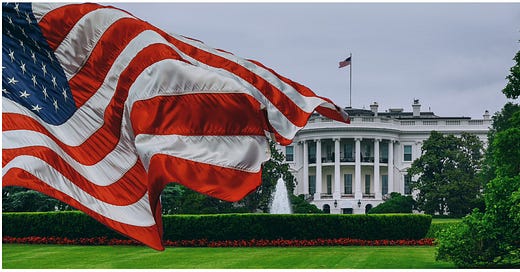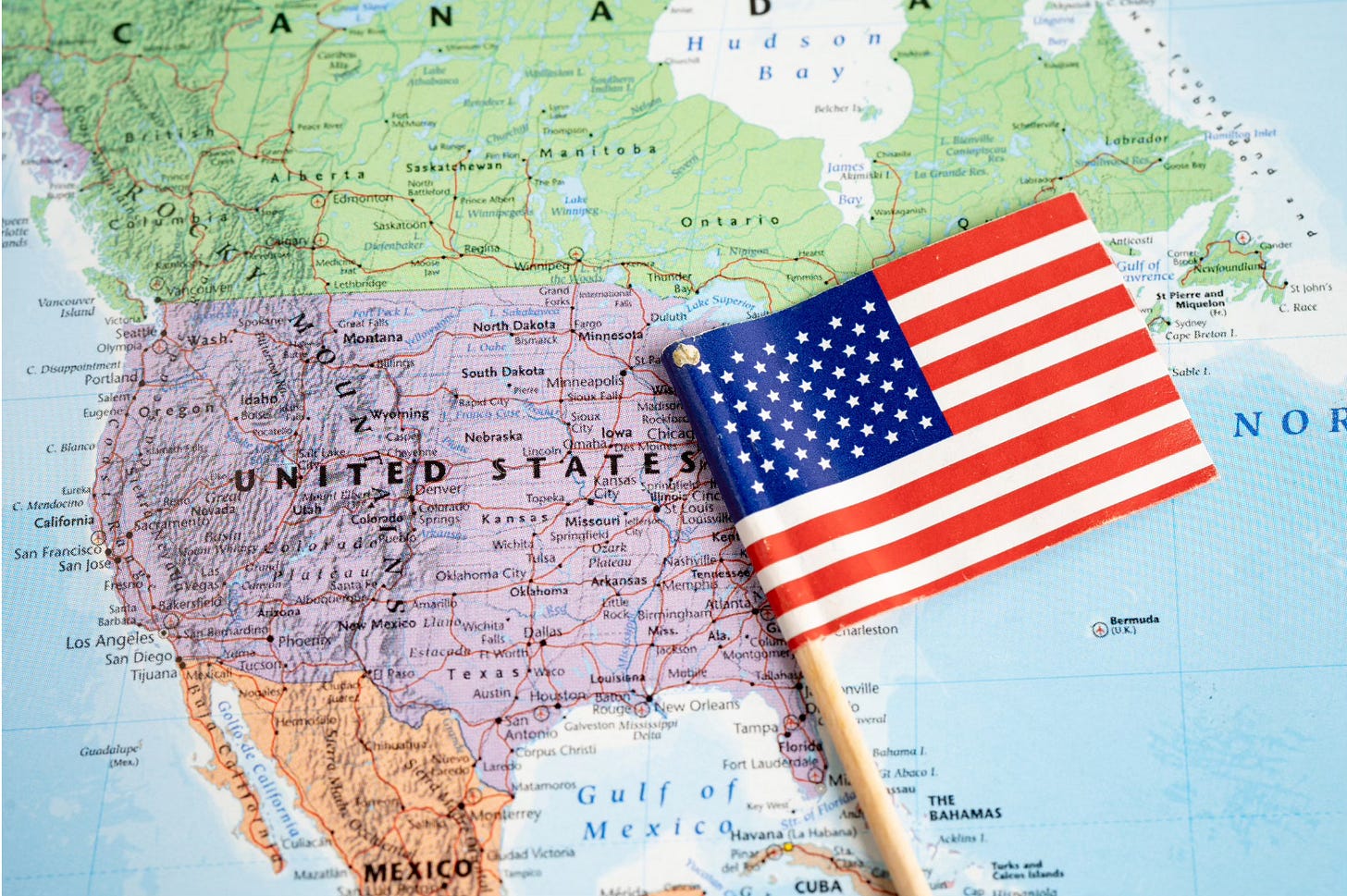If they didn’t take it seriously last time, they sure do now. People everywhere are now contemplating another Trump term. It may not happen, but like rain in Seattle, it’s sure worth preparing for.
What, then, would Trump 2.0 mean for people around the world committed to fighting global challenges like climate change, pandemics, conflict and inequality?
Trump never missed an opportunity in his first term to rail against the international system, stating in his first presidential speech at the UN: “We reject the ideology of globalism”. He withdrew the United States from the Paris Agreement on Climate Change, WHO, UNESCO and the UN Human Rights Council. He refused to join the COVAX scheme that tried and failed to vaccinate the world’s poorest countries as quickly as the rich. Those organisations were all weakened but hobbled on. Would a second term be enough to send the fragile multilateral system into freefall?
Political prediction is difficult. And trying to predict what life under Donald Trump will bring – even from one day to the next, let alone over a four-year period – would fool the smartest quantum computer.
Working with Trump’s first White House left you lost for words. Governments come and go, some with policies you may like, others less so. But there is usually a reasonable assumption when talking to senior government officials of any country, let alone the world’s most powerful, that someone, somewhere knows what on earth is going on. In my experience, this was not the case in Trump’s administration. No one knew what was happening nor what would happen at any point in time. Only two things were consistent; firstly, the level of eye-popping chaos and secondly, the near perfect match between the external media-driven picture of a clown show in the White House, and the real clown show behind the scenes. It really was that bad.
This is already an important data point in trying to understand what Trump 2.0 would look like. And it suggests that some recent analysis may be off the mark. A narrative has formed that Trump’s second term will be distinguished from its first by the disciplined implementation of policies that have been patiently designed in the Biden years, with “meticulous, ruthless preparation”. The Economist writes that “a professional corps of America First populists are dedicating themselves to ensuring that Trump Two will be disciplined and focused on getting things done”. This narrative asserts that Trump Two will be more dangerous than Trump One because his administration will be well organized; will consist only of loyalists. This will be achieved by replacing up to 50,000 officials with political appointees to “drain the swamp” and ensure that policies are not blocked by pesky moralists within government.
Well, perhaps. But these carefully laid plans for Trump’s second term are not Trump’s plans. They are the noisy efforts of Trump-supporting think tanks to take advantage of his potential win to secure their vision of America and the world. And you can be sure that Trump has not read the thousands of pages they have published, nor even a TikTok video summarizing them.
Remember Steve Bannon’s vision for Trump’s first term? Those plans were dead within 8 months. And all that talk about how his administration would eventually settle down into something more stable, after the “Fire and Fury” of the first year? Trump’s backers have tried to explain his behavior as pursuing an “unpredictability doctrine” but careful study of his policy choices has shown that his administration was simply irrational from beginning to end. Do not bet that those trying to channel and control a man who just released a new brand of golden sneakers the day after being fined $350 million for lying about his business affairs will do any better at reining in “the Donald” in round two than the self-proclaimed “adults in the room” did in round one.
It was sheer incompetence that prevented Trump from successfully wrecking the international system the first time round. This incompetence is likely to persist. If he does attempt to replace 50,000 civil servants with his cronies, it is more likely to increase the level of chaos than turn the United States into a ruthlessly efficient Trumpian death star. In the four years of his first term, an extraordinary number of the usual political appointments were still not filled. It is hard to imagine that a mass sacking like the one currently being discussed would lead to an administration better able to impose its ideas on an unwilling world. More likely is that disorder would be multiplied.
Does another round of incompetent government mean that a second Trump term would be harmless? Not at all. Real damage was done to the world by America’s erratic leadership from 2017 to 2020, perhaps most of all in connection with the COVID-19 pandemic. A responsible United States that stood up for fairness and multilateralism could have helped ensure that vaccines were delivered equitably, saving countless lives and building confidence in the international system. If Trump wins another term, the first international casualty will be Ukraine, which will lose its most powerful defender.
Incompetence alone is not a reliable barrier against destructive forces. Trump’s clear intention is to make it harder for the world to collaborate. There are no guarantees he will fail. And an irrational presidency might easily stumble into an accidental and unimaginably destructive war.
But the truth is that Trump was not, and will not be, as much of a rupture as many people think.
Words matter, and Obama’s words were as beautiful as Trump’s are vulgar. An analysis of both presidents' tweets has claimed that every single one of Obama’s contributed to reinforcing US soft power, while two thirds of Trump’s eroded it. But actions matter more. And when it comes to actions on the global stage, there has been more continuity than dissonance between successive US administrations.
Obama, he of the “Cairo speech”, deployed armies of drones to carry out ten times as many extrajudicial killings as the rhetorically more hawkish George W. Bush. Trump made headlines with the “Muslim travel ban”, but it was Obama’s team who had drawn up the list of 7 Muslim-majority countries and begun to impose restrictions (some of which directly affected one of the authors of this piece).
Biden, in turn, has continued with many of Trump’s international policies. He may have returned the US to the Paris Agreement, but he has also issued more permits to drill for hydrocarbons than Trump ever did. Both Trump and Biden have given Israel carte blanche to ignore international law. Both have placed trade sanctions on China. Both have infuriated their European allies with economic protectionism.
An angrier, less confident, mercantilist America, one that is less willing to collaborate and lead, is a reality that Trump did not create nor would his defeat in November reverse it. A second Trump term, with all the vitriol, chaos and attacks on multilateralism may speed up a long-running process. But it is naïve to believe in the counterfactual: when Biden announced that “America is back”, it wasn’t. Nothing Trump did has shattered American moral authority in the world like the current administration sending billions of dollars in military aid to a country carrying out slaughter on an unimaginable scale against an occupied, vulnerable civilian population, while its government is on trial for genocide in the world’s highest court.
All power is built on winning the narrative battle. Military battles can only tidy the edges of political authority. And the narrative is slipping away from a country that has lost the ability to tell stories about itself that feel respectful and inclusive to the rest of the world. American hegemony is eroding, and, in this long process, Trump is just a quiver in the long downward trajectory.
Squint hard and there is a silver lining. Off in the distance, as the old twentieth-century world order falters with its imperial center gradually crumbling, lies a better world vaguely perceptible through the storm clouds.
The Economist frets that if Trump were to win this year, “America would become just another big power.” To believers in America’s essential benevolence this is an awful prospect. But in reality, it is a necessary condition for true multilateralism to emerge.
The transition from hegemony to multipolarity is fraught with dangers. But it is also an extraordinary opportunity. No hegemonic power can ever be expected to build a fair world. Fairness in politics has always been a hard-won compromise by peers who recognize they cannot ride roughshod over each other. The idea of a benevolent American hegemony is as misguided as belief in a benevolent British empire. Pax Americana, like Pax Britannica before it, has its advantages. But in the end it is a cul-de-sac.
Germany and Japan are pillars of multilateralism precisely because they do not (anymore) have imperial pretensions. They are both “just another big power”. They know they are stronger because of their alliances; both regional and global. They back the UN and support decisions taken by consensus. The UK and France, for all their imperial baggage, are good actors on the international stage precisely to the extent that they accept their role as middling countries. They are bad actors precisely to the extent that they do not.
An end to American hegemony does not need to be an end to liberal values, democracy and international cooperation to solve humanities’ problems. In fact, it is the only way to restore the moral authority that a bitter, declining hegemony is eroding. America as “just another big power” would have to work harder to court allies. It would have to listen more to both friends and foes.
The irony about America Firsters is that they are hastening a world in which they are forced into acting more multilaterally. When Europe and Japan have finished their rapid rearming, when the Middle East has completed its pivot to Asia, and when American credibility is further eroded by populist actions (whether dressed as “America First” or “America is back”), the occupant of the White House will increasingly find the need to knock politely when asking for favours. Then it may find the UN more useful than it does now. It may slowly begin, as “just another big power”, to see protection for itself in seeking compromise
This substack forms part of our weekly Global Cooperation Update series, which means you can also watch it on YouTube or listen to our podcast and subscribe for more.





